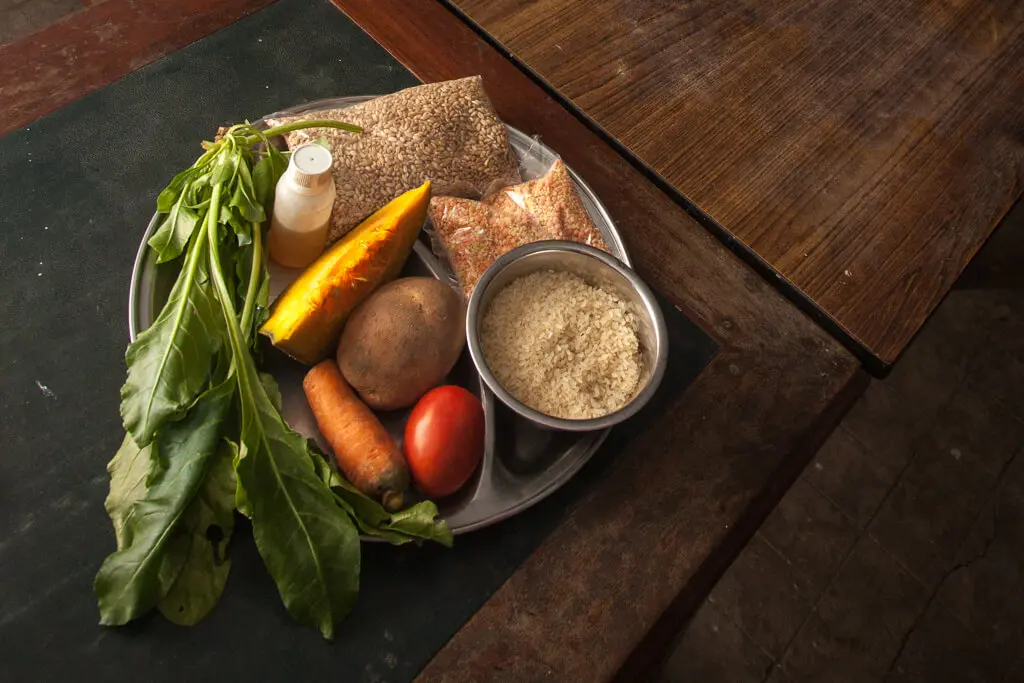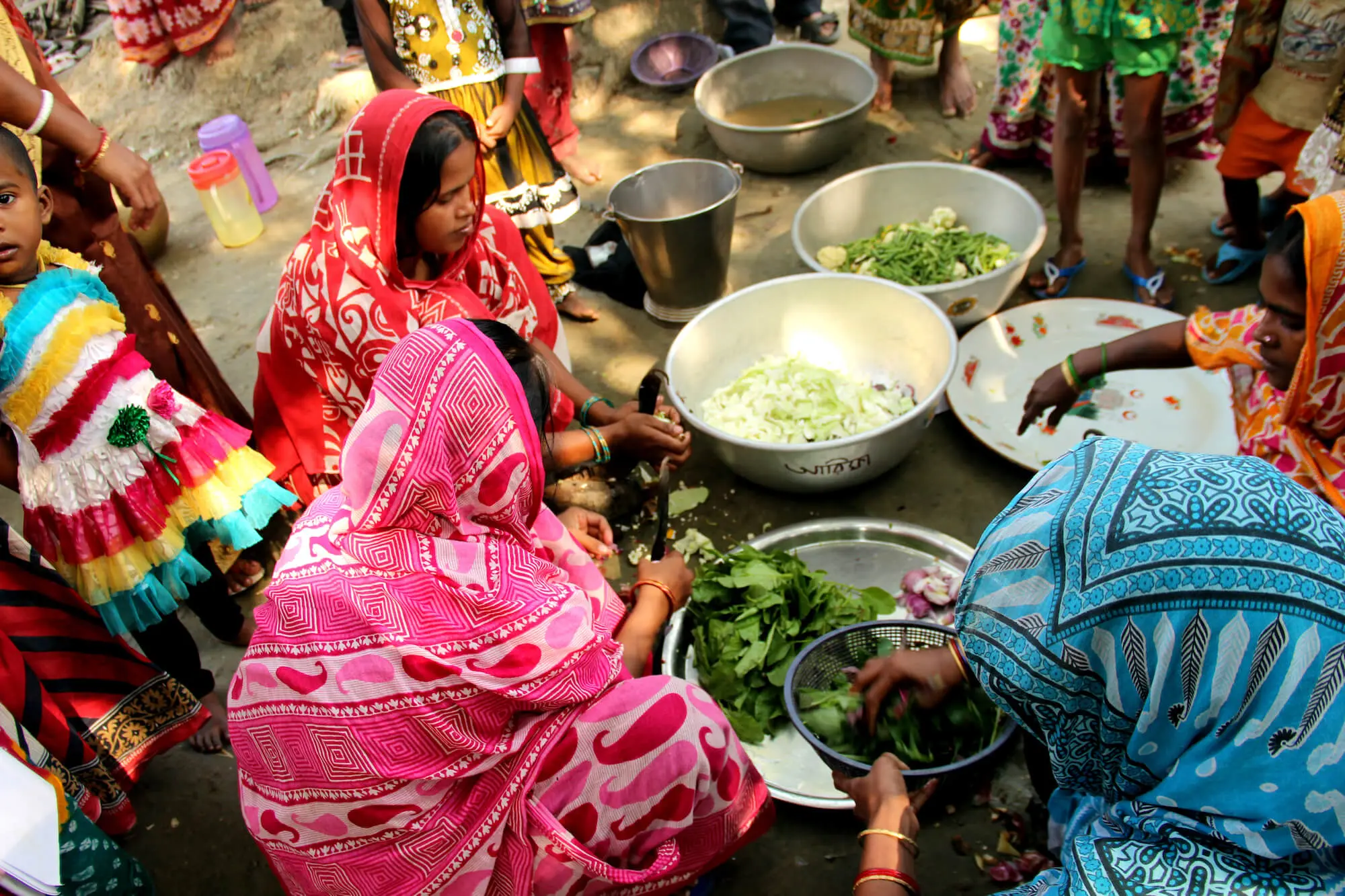Nutrition
According to UNICEF, about half of all childhood deaths are attributed to malnutrition.
Since its inception, CINI’s work with deprived communities has focused on nutrition, a problem that remains crucial in India to this day. Children who are undernourished during the critical first 1000 days of life (from pregnancy to age 2) are more susceptible to fatal infections including diarrhoeal illness, pneumonia, and measles. Every one of these preventable deaths has devastating consequences for parents, families, and wider communities. Chidren who are well nourished during their early years have stronger immune systems, can thrive in school, and are more likely to become healthy adults.
CINI’s work
The problem of malnutrition is not always as straightforward as simply lack of food. Many families do not always share food equally among their members. Mothers and infants, especially girls, are rarely given priority. Traditionally, women eat last in Indian families. When food is scarce, men receive more than women, boys more than girls, older children more than younger children. Diet can be imbalanced due to a limited understanding of nutrition, as well as lack of food availability. CINI’s nutrition projects focus on educating women, especially pregnant and lactating mothers, to make the most of what is available. This process is usually entrusted to health workers, local women who are trained by CINI and those who can approach women in their homes in villages and slums.
Our ultimate goal is to ensure full physical and mental growth and development in children by ensuring adequate nutrition during the critical periods of the life cycle. Our interventions aim to address a variety of determinants of malnutrition in children, adolescents and pregnant women in terms of health, hygiene and sanitation, child care, appropriate feeding practices (including breastfeeding), growth monitoring and promotion, adoption of low-cost home-madee foods, promotion of gender equality.
In addition to promoting community-based nutrition interventions, we refer severely malnourished children in our Nutrition Rehabilitation Centre (NRC), where balanced food is provided in small but frequent amounts to increase a child’s weight safely over a period of several weeks.

Growing children with Nutrimix
In the early 1970s, CINI developed Nutrimix, a low-cost nutritious food made from locally available cereals (rice/wheat) and legumes (dal – lentils), which washas have been promoted at home and in the community level, as well as in Government health and nutrition programmes. With the help of a World Bank grant, Nutrimix has been commercialized by women’s self-help groups as a social business venture to offer a socially appropriate alternative to industrially produced weaning foods.

Providing iron supplements to children and women
To address iron deficiency anaemia, CINI has partnered with Government and international NGOs to provide iron supplements to children and women.
Across a range of nutrition interventions, our primary concern from the beginning has been the first 1000 critical days of the life cycle – the period spanning pregnancy and the two first years of a child’s life. Since the 1970’s, our home and community-based measures have been aimed at preventing malnutrition,improving access to health and nutrition information and education in local communities, and facilitating early access to healthcare.
